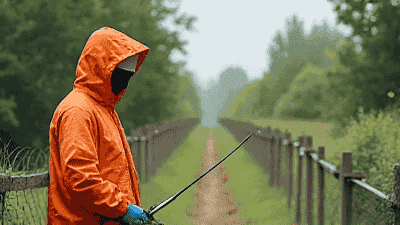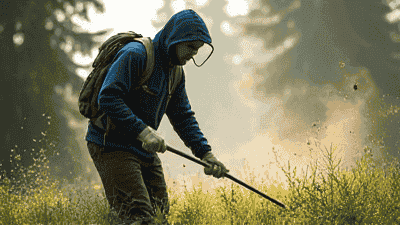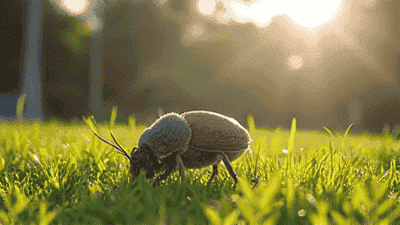
Dealing with pests in and around your home can be a frustrating experience. Whether you are facing ants marching through your kitchen, spiders spinning webs in your bathroom, or rodents scurrying in the attic, the urge to take immediate action is understandable. While many people may consider hiring professional pest control services, DIY pest control has gained popularity due to its cost-effectiveness and convenience. However, it is essential to approach pest control with the right knowledge and techniques to ensure effectiveness and safety.
DIY pest control refers to the use of non-professional methods to manage and eliminate pests in a home or garden. This approach can involve a variety of techniques, from natural remedies to chemical solutions, with the aim of securing a pest-free space. While DIY methods can be effective, they require caution, knowledge, and a systematic approach to be successful.
Cost Savings: Hiring professional exterminators can be expensive. Implementing DIY methods can save you money while still effectively addressing pest issues.
Immediate Action: When facing a pest problem, waiting for a professional may not be feasible. DIY methods allow homeowners to take swift action to manage pests.
Knowledge and Awareness: Engaging in DIY pest control increases your understanding of pest behavior, life cycles, and preventive measures. This knowledge can help you avoid future infestations.
Eco-Friendly Options: DIY pest control often allows for the use of natural and organic methods that are less harmful to the environment and human health.
Empowerment: Taking control of pest issues empowers homeowners to be proactive in managing their living spaces.
Ineffectiveness: Some DIY methods may not effectively eliminate the underlying pest problem, leading to recurring infestations.
Safety Concerns: Some pest control substances can be hazardous to humans, pets, and the environment if used improperly.
Potential for Damage: Incorrect use of certain products or methods can cause damage to property or belongings.
Overreliance on Chemical Solutions: Some homeowners may resort to chemical pesticides without fully understanding their application or effects.

Before embarking on any DIY pest control efforts, take the time to research the specific pests you are dealing with. Understanding their behavior, habitat, dietary preferences, and life cycles is crucial for implementing effective control measures. Look for reliable resources, such as university extensions or reputable gardening websites, to gather accurate information.
Correctly identifying the pest is vital for successful pest control. Some pests may require different treatment methods. For instance, ants, cockroaches, and termites may all be treated differently due to their unique habits. Observing the pests’ characteristics and seeking expert identification may make a significant difference in your approach.
Prevention is the most effective method of pest control. By eliminating potential entry points, food sources, and nesting areas, you can reduce the likelihood of an infestation before it occurs. Here are some preventive measures:
Natural pest control methods can be effective and safer for both humans and the environment. Here are a few common natural ingredients and their uses:
After implementing DIY pest control methods, monitor their effectiveness over time. Keep an eye on areas where pests were previously active, and take note of any changes in behavior. If you see no improvement, consider adjusting your approach or seeking professional help.
If you choose to use commercial pest control products, make sure to read labels and instructions carefully. This ensures that you use the product safely and effectively while understanding potential risks.
Pest control is often not an instantaneous process. It may take time for the methods you've implemented to show results. Be patient and continue to monitor the situation before reassessing your approach.
An integrated pest management (IPM) approach combines multiple control methods for maximum effectiveness. For example, you might use natural remedies in conjunction with traps and preventive measures to eliminate and deter pests more effectively.
If your DIY efforts are unsuccessful or if you are dealing with a significant infestation (such as termites or bedbugs), do not hesitate to seek assistance from licensed pest control professionals. They have the expertise and resources to effectively manage complicated pest issues safely.
It's crucial to accurately assess the severity of your pest problem. Ignoring a minor issue may allow it to escalate into a full-blown infestation. Be vigilant about monitoring for signs of pests and addressing issues as they arise.
While chemical pest control products can be effective, careless application can pose risks to your health, pets, and the environment. Follow the safety guidelines provided on labels and use chemicals only when necessary. Opt for natural solutions when possible.
Applying too much pesticide or treatment can not only waste product but can also increase the risk of harming beneficial insects and the environment. Always follow recommended application rates and frequency.
While many DIY pest control remedies are effective, it's crucial to test them on a small area before widespread application. This helps ensure that the treatment will not cause unintended harm to the surfaces or plants around your home.
Mixing different chemical products can result in dangerous reactions or create toxic fumes. Always use products as directed and never mix chemicals unless specifically instructed to do so by a professional.
Once you have tackled the pest problem, remember to clean the affected areas. Remove any dead pests, debris, or residue from treatments to minimize the chance of attracting new pests or re-infestations.
Proper hygiene and regular home maintenance are key components of pest prevention. Neglecting to clean your home, fix leaks, or maintain your yard can create attractive conditions for pests to thrive.
Not all insects are detrimental to your home or garden. Some bugs, such as spiders and ladybugs, can be beneficial by preying on harmful pests. Learn to identify beneficial insects and take a balanced approach to pest control.
Effective pest control requires timely action. Delaying a response when you notice pest activity can lead to larger infestations that are harder to manage.

While the fundamentals of DIY pest control are essential, there are advanced techniques that can enhance your pest management strategy. Consider these methods if you're interested in taking your approach a step further:
Using traps can help you identify pest types and their activity levels. Sticky traps, pheromone traps, and bait traps are effective tools for monitoring and control. Placing traps in strategic locations enables you to gauge the severity of infestations.
Biological pest control involves using natural predators or parasites to manage pest populations. For instance, introducing ladybugs can help control aphid populations in the garden. This method promotes a balanced ecosystem.
Beneficial nematodes are microscopic worms that can control soil-dwelling pests. Applying these nematodes to affected areas can help eliminate pests like grubs and beetles without harming plants.
Certain essential oils are known for their insect-repelling properties. Create natural sprays by mixing essential oils with water and a small amount of soap. Use these sprays on plants and around the home to deter pests.
Physical barriers can be highly effective for preventing pest entry. Use fine mesh screens on windows, weatherstripping on doors, and caulking around openings to create an effective barrier against pests.
Horticultural oils are lightweight oils derived from plants, which can suffocate pests like aphids and mites. They work by blocking the breathing pores of these insects. Apply oils during the growing season for effective pest control.
DIY pest control offers homeowners the opportunity to take charge of their pest issues while promoting sustainable practices. By understanding the do's and don'ts of effective pest management, you can maintain a pest-free environment while minimizing risks to yourself, your family, and the environment.
Remember, a successful pest control strategy begins with education and awareness. By researching pests, employing preventive measures, and using natural remedies when possible, you can achieve your pest control goals in a safe and effective manner. However, don't hesitate to seek professional assistance for persistent or severe pest problems.
Effective pest control requires a balanced approach that recognizes the importance of prevention, natural solutions, and responsible management. Whether you are battling common household pests or managing garden invaders, the principles outlined in this guide will empower you to tackle pest challenges with confidence and skill.